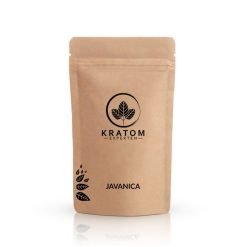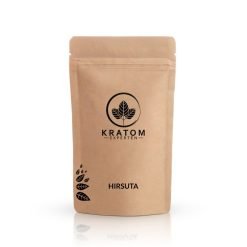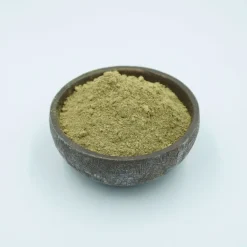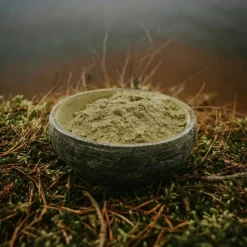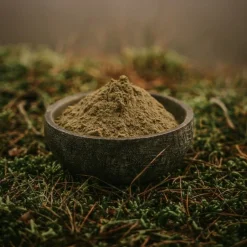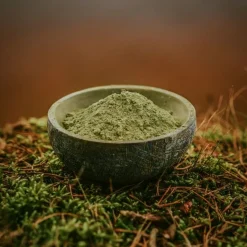Kratom
What is Mitragyna Javanica?
What is Mitragyna Javanica?
Mitragyna javanica is a tropical tree species native to Southeast Asia, especially Thailand, Laos, Cambodia, and parts of Indonesia such as Java and Sumatra. It belongs to the Rubiaceae family, which is also home to well-known plants like coffee and gardenia. The genus Mitragyna includes several species, many of which have been traditionally used in external herbal practices.
Mitragyna javanica is gaining global interest as a mild, plant-based botanical often included in rituals focused on balance, clarity, and connection with nature. Though still under the radar compared to more widely known relatives, Mitragyna javanica stands out for its elegant form, soft leaves, and its growing presence in botanical and wellness communities.
Botanical Overview
Scientific name: Mitragyna javanica
Genus: Mitragyna
Family: Rubiaceae
Common regions: Thailand, Indonesia (Java, Sumatra), Laos, Cambodia
Habitat: Tropical lowland forests, secondary forest areas, open woodland
Tree height: Typically 15–20 meters
Leaf shape: Elliptic to obovate, 5–14 cm long
Flowers: Small, pale green to yellowish, arranged in round heads
Seeds: Winged, designed for wind dispersion
Traditional and External Applications
Historically, Mitragyna javanica has been used in external plant-based rituals, particularly in regions where the tree grows naturally. It has been a part of practices rooted in cleansing, renewal, and sensory grounding. These include:
Herbal baths – often prepared by steeping the leaves in warm water
Steam rituals and facial steaming – used to promote calm and clarity
Botanical scrubs – made from finely milled leaf powder blended with natural oils
Aromatic compresses – created with warm herbal infusions applied to the body
All traditional uses of Mitragyna javanica focus on external, non-ingestive applications. These rituals are often part of broader wellness or ceremonial routines and are valued for their symbolic and sensory qualities rather than for internal effect.
Is Mitragyna Javanica Legal in Europe?
Yes – Mitragyna javanica is currently legal across the European Union. It is not classified as a controlled substance in most EU countries and is generally permitted for sale as a botanical material for technical, research, or external use.
However, it’s important to note:
It must not be sold or marketed for human consumption
It should be clearly labeled for technical or botanical purposes only
Laws can vary slightly between countries, so local regulations should always be checked
Reputable sellers of Mitragyna javanica ensure their products are fully compliant with EU guidelines and provide lab-tested, additive-free plant material intended for responsible use.
How Does It Compare to Other Mitragyna Species?
Compared to other members of the Mitragyna genus – such as M. hirsuta, M. speciosa, or M. rotundifolia – Mitragyna javanica is:
Softer in leaf texture
Lighter in aroma when steeped or warmed
Visually smaller, with more delicate venation
Favored in gentler applications, such as face steaming and light herbal washes
Its more balanced character makes it ideal for inclusion in calming, restorative plant-based rituals.
Sourcing, Processing & Purity
The leaves of Mitragyna javanica are typically:
Harvested during peak maturity, when leaf color and texture are optimal
Shade-dried to preserve botanical compounds and avoid UV degradation
Milled using stainless steel equipment to produce a fine, consistent powder
Packaged without any additives, fillers, or synthetic processing
Responsible sourcing focuses on leaves from secondary forest regions, where the tree grows naturally without cultivation or disturbance to primary ecosystems.
Storage and Use
Shelf life: Up to 12 months
Storage: Keep in a cool, dry place out of direct sunlight
Labeling: For technical, botanical, and external use only
This product is not food, feed, or intended for human ingestion in any form.
Final Thoughts
So, what is Mitragyna javanica?
It is a graceful and sustainable botanical species from Southeast Asia, appreciated for its use in external rituals, herbal traditions, and plant-based product formulations. With its smooth leaves, light aromatic presence, and long history in wellness contexts, it continues to earn its place among nature-based self-care enthusiasts and botanical researchers alike.
As a legal and respectful plant ally, Mitragyna javanica offers a gentle gateway into the world of tropical flora – always handled with care, and never meant for ingestion.

